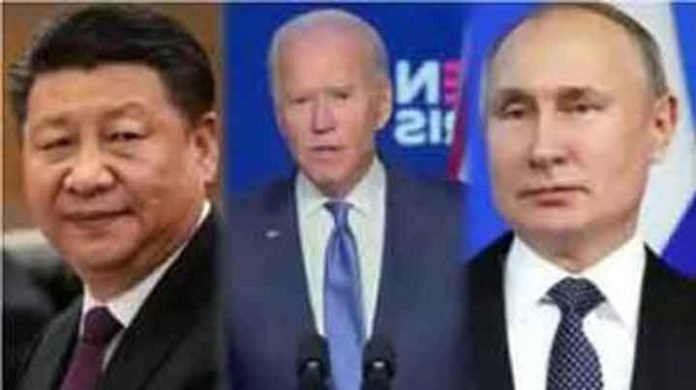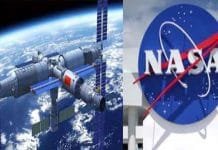The United States has recently authorized a significant arms sale to Taiwan, marking a pivotal moment in the ongoing geopolitical tensions between China and Taiwan. The deal, valued at an impressive $385 million, includes crucial military equipment, including spare parts for F-16 fighter jets and advanced radar systems. This move comes amid heightened military activity around Taiwan, signaling a deepening military relationship between the US and Taiwan.
On November 30, 2024, the US State Department officially approved the sale of vital military parts to Taiwan under the Foreign Military Sales (FMS) program. The transaction involves the provision of spare parts for Taiwan’s fleet of F-16 fighter jets as well as upgrades to the island’s radar systems. These components are critical for maintaining Taiwan’s operational readiness, enabling the country to continue its defense against current and future threats, especially from China.
The sale is scheduled to begin in 2025, and while it may seem like a routine transaction, it is far from it. The deal has significant strategic and political implications, both for Taiwan and for the broader US-China-Taiwan relations.
This approval comes at a particularly sensitive time. Taiwan President Lai Ching-te is set to visit the Pacific region, including US territories such as Hawaii and Guam, a move that has already sparked strong reactions from Beijing. China has consistently opposed US arms sales to Taiwan, viewing them as a violation of its sovereignty and a threat to its territorial claims over Taiwan.
For the US, the decision to approve the deal is part of its broader strategy to counter China’s growing military influence in the Asia-Pacific region. The sale of spare parts for F-16s and radar systems is aimed at enhancing Taiwan’s defense capabilities, specifically to ensure the operational readiness of its air force in the face of increasing threats from China’s expanding military presence.
Taiwan, under President Lai Ching-te, has been proactive in seeking to bolster its defense capabilities. Taiwan’s leaders have long expressed concerns about the growing military pressure from China, which has intensified over the past decade. China’s military build-up, including the expansion of its naval and missile forces, is seen as a direct challenge to Taiwan’s sovereignty.
As a result, Taiwan has focused on strengthening its military ties with the United States. This arms deal is the 18th of its kind during the administration of US President Joe Biden. It reflects a continuing commitment to provide Taiwan with the tools it needs to defend itself, despite Beijing’s protests. Taiwan has also pursued various defense modernization programs, including acquiring advanced missile systems and radar technologies.
The announcement of the arms deal comes amid escalating military activities around Taiwan. China’s People’s Liberation Army (PLA) has significantly increased its presence in the waters and airspace surrounding the island. The PLA regularly conducts military drills near Taiwan, which often include naval exercises, air patrols, and missile tests.
These military maneuvers have raised alarms not only within Taiwan but also in the broader international community. Countries in the Indo-Pacific region, such as Japan, South Korea, and Australia, have expressed concerns about China’s growing aggression. The US, in response, has reaffirmed its commitment to Taiwan’s defense through various military agreements, including this latest arms deal.
The approval of the arms deal coincides with Taiwan President Lai Ching-te’s visit to the Pacific region. This is Lai’s first foreign trip since taking office and is viewed as a significant diplomatic move. His itinerary includes stops in Hawaii and Guam, both of which are key US territories in the Pacific.
In his statements prior to departing, Lai expressed gratitude to the United States for facilitating his visit and highlighted the growing cooperation between Taiwan and the US. He described his trip as the beginning of a new era of value-based democracy, underscoring Taiwan’s commitment to upholding democratic values in the face of pressure from China.
However, China has strongly condemned Lai’s visit, viewing it as a direct affront to its One-China policy, which asserts that Taiwan is an inseparable part of China. The Chinese Foreign Ministry has demanded that the US handle the Taiwan issue with greater caution, urging the United States to clearly oppose Taiwan’s independence and support China’s peaceful reunification efforts.
China’s response to the $385 million arms deal has been predictably harsh. The Chinese government has repeatedly condemned such arms sales, viewing them as a provocative act that undermines China’s territorial claims. In addition, China’s foreign ministry has warned the United States that continued military support for Taiwan could have serious consequences for bilateral relations between the two nations.
China has also ramped up its military activities near Taiwan in recent years, including frequent air and naval operations in the Taiwan Strait. These maneuvers are often seen as a show of force, meant to intimidate Taiwan and deter international support for the island’s defense. Despite these threats, Taiwan has continued to pursue closer ties with the US, including through the purchase of advanced military technologies.
The approval of the $385 million arms deal is part of a larger pattern of increasing US-Taiwan defense cooperation. Since President Joe Biden took office, the United States has approved several major arms packages to Taiwan, including the sale of advanced missile defense systems and fighter jets. These deals are aimed at enhancing Taiwan’s military deterrence capabilities, ensuring that the island remains capable of defending itself against potential Chinese aggression.
The US has made it clear that it will continue to provide Taiwan with the support it needs to maintain its security, despite Beijing’s objections. The ongoing military cooperation between the US and Taiwan reflects a shared interest in countering China’s growing influence in the region.
















